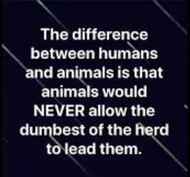
We own The Science and we think that the world should know it.’ Those were the words of the UN Under-Secretary-General for Global Communications Melissa Fleming last month, speaking on a panel on disinformation at a World Economic Forum conference. Fleming was boasting about how the UN had partnered with Google to change the search results for topics like Covid and climate change.
We are certainly getting to know about how the elites are putting their fists on the scales to shape and manipulate public debate and opinion, because they are increasingly open about what they’re up to.
Big Tech companies are not at all hesitant about being openly biased in how they operate as publishers of online content.
This month the Institute of Public Affairs attempted to promote a research video featuring Senators James McGrath and Jacinta Price and leading intellectual Dr Anthony Dillon, explaining why establishing a voice in the constitution would permanently divide Australia by race.
When the IPA attempted to pay a fee to Facebook to promote this research to a wider audience it was rejected on the basis that it would breach Facebook’s policies about social issues, elections or politics.
Meta, the parent company of Facebook, asserts that ‘any advertiser running ads about social issues, elections or politics’ must include a ‘paid for by’ disclaimer on these ‘ads’. How the research video discussing racial equality violated Facebook’s policies was never mentioned. The farce was at least acknowledged by Facebook when it removed its ban – only to reimpose it a few hours later.
Attempting to cover its tracks, Facebook leaked their version of events to the Guardian, which defended the censorship: ‘The IPA warriors might have saved their outrage for another day if they had just read the fine print. It was not the content of their ad that was the problem. Facebook’s rules require ads which have political content to carry a “disclaimer, disclosure, and ad labelling”’, they wrote. Except, three days later in a story published in the Australian Facebook again changed their version of events.
Facebook finally came clean and admitted they were wrong to have removed the ban on the promotion of the IPA’s video, although they wrongly continue to maintain that the content of the IPA’s video required a disclaimer to begin with. A Facebook spokeswoman said: ‘The ad was live for a short period of time in error, but was removed as soon as we realised it was missing the disclaimer.’ Facebook’s admission of error is significant, because if even Facebook cannot figure out how their vague rules work, how can they be trusted to control what people say in the digital public square? It also reinforces the perception of millions of Australians that Big Tech companies are putting their fingers on the scales on the likely forthcoming Voice referendum, which raises questions about the integrity of that referendum.
Behaviour like this from Facebook has been encouraged by governments. In recent years a consensus has emerged among political leaders that Big Tech companies should be given more power and responsibility to undermine freedom of speech online. Former Liberal federal minister for communications Paul Fletcher’s misinformation and disinformation laws, announced just before the May federal election, would have given regulators extraordinary new powers to force digital platforms to crack down on ‘harmful’ disinformation. Similarly, the not so Conservative government in the UK is pressing ahead with its Online Safety bill, which will force digital platforms to censor ‘lawful but harmful’ content. New Zealand’s Prime Minister Jacinda Ardern has even likened online speech to ‘weapons of war’. In an address to the UN General Assembly, Ardern called on parties to take the ‘collective will’ to ‘bring us back to order’. One could be forgiven for thinking the type of order Ardern has in mind is one in which mainstream voters aren’t allowed to disagree with her government.
It’s not just speech and it’s not just social media. Last month PayPal closed the personal account of Speccie writer Toby Young, and the accounts of two organisations he leads, the Daily Sceptic and the Free Speech Union, seemingly without explanation or cause. PayPal later reversed its decision but reserves the right to arbitrarily destroy online businesses as it sees fit. Indeed, last week PayPal announced its new Acceptable Use Policy to ‘fine’ users $2,500 for advancing ‘misinformation’. They have since said this announcement was, you guessed it, an ‘error’ but that they still retain the ‘sole discretion’ to punish users for engaging in what it deems ‘the promotion of hate’ or ‘other forms of intolerance that is discriminatory’.
It is unclear how this behaviour is distinct from that of a government – and this is exactly the point. Big Tech is exerting government-like power because it is the de facto government of the digital public square. The difference is that that there is not even a pretence of democratic oversight or accountability in how they perform this function. And there will be no pushback from actual governments. The tech companies are in effect franchisees of government power, allowing their platforms to be used to enforce the ideological and informational conformity.
What happened to the IPA’s research video is an exemplar of what is one of the most significant challenges to freedom in our time. At a time when Australians are being asked to permanently enshrine race in the constitution, foreign-owned Big Tech mega corporations are asserting their power to control how that debate will be held, or if there will be a debate at all.












